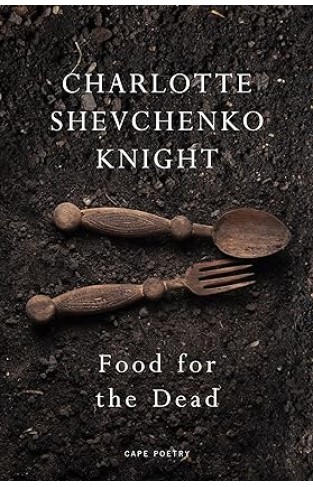This searingly powerful first collection about Ukrainian identity is a howl of anguish and an elegant counter-song against totalitarianism
'A beautiful, necessary book'
ILYA KAMINSKY, author of Deaf Republic
'Every poem is a masterpiece'
OLIA HERCULES, author of Mamushka
With this searingly powerful first collection, Charlotte Shevchenko Knight gives the current war in Ukraine some much-needed human focus, while examining its brutal aggression within a wider and more accurate historical context.
Central to this book is ‘a timeline of hunger’, a lyric sequence which examines the legacy of the Holodomor (‘death by hunger’ in Ukrainian) – Stalin’s man-made famine of the 1930s. This long poem opens in Kyiv in 2021 – ‘brief visitations / of appetite / I devour / beetroot / its juices / running / down my lips / blood / of the past’ – and closes in Donetsk in 1929: ‘we burst the balloon / skin of tomatoes / between our teeth / seeds running down chins / like confetti / & we already know / every meal / should be celebrated.’ Through the poet’s sensitive approach to the historical, moving from that genocide of the early 1930s, then on through the Second World War, the Chornobyl disaster, to modern-day invaded Ukraine, we understand that within their ‘bones Holodomor / lives on’.
Both a howl of anguish and an eloquent counter-song against totalitarianism, this is a book about invasion, war, destruction and death, but also about the bonds of humanity, family and a history of oppression – about staying alive while always hungry.











